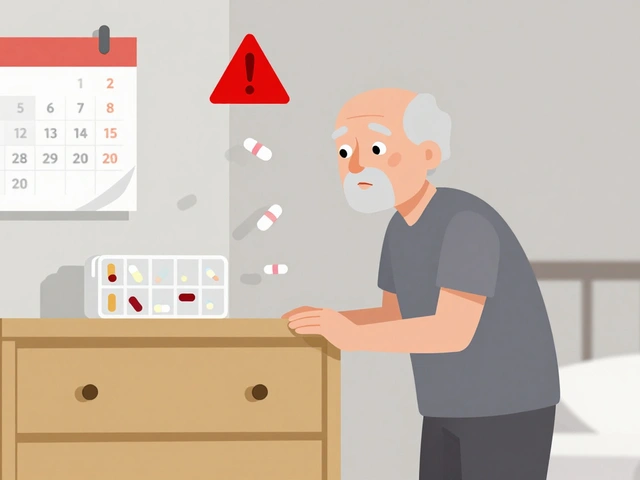Edema treatment: What works and when to see a doctor
Edema means extra fluid collected in your tissues. It usually shows as swelling in feet, ankles, hands, or belly. Sometimes it's harmless — like after standing all day — and sometimes it points to heart, kidney, or liver problems. Here are simple, useful steps you can try and what doctors often do when home care isn't enough.
Quick at-home steps you can try today
Start with easy, low-risk actions. Raise swollen legs above your heart for 20 minutes a few times daily. Wear compression stockings if the swelling is mainly in your legs — they help push fluid back into circulation. Cut down on salt; less sodium reduces water retention. Move more: short walks and ankle pumps improve blood flow and prevent fluid pooling. Avoid tight socks or shoes that press into your skin.
Also check your medicines. Some common drugs cause edema — for example, NSAIDs (ibuprofen), calcium channel blockers (like amlodipine), and steroids. If you suspect a drug is the cause, don’t stop it abruptly. Instead, talk to the prescribing doctor about alternatives.
Medical treatments and tests
If swelling is sudden, painful, or getting worse, see a doctor. They’ll usually ask about other symptoms (shortness of breath, weight gain, belly swelling) and run tests like blood work, urine tests, and sometimes an ultrasound or echocardiogram. These checks help find if the cause is heart failure, kidney disease, liver issues, or a blood clot.
Prescription treatments depend on the cause. Diuretics (water pills) are common: loop diuretics such as furosemide for stronger effect, and thiazide diuretics for mild cases. Spironolactone is a potassium-sparing option used when hormone-related fluid retention or certain heart issues are present. If an underlying condition is the culprit, treating that problem often reduces edema — for example, better heart failure care or dialysis for kidney failure.
When you take diuretics, your doctor will monitor blood pressure, kidney function, and electrolytes (like potassium). Rapid weight loss from diuretics is one sign they’re working, but sudden changes need medical review.
Know the red flags: get urgent care for sudden swelling in one leg (possible blood clot), shortness of breath or chest pain (possible heart or lung emergency), high fever, red or hot skin over the swelling, or if swelling follows an injury.
Final practical tips: weigh yourself daily to spot quick fluid gain, avoid standing or sitting for long stretches, and keep a list of medicines to show your clinician. Edema often responds well to simple changes, but if it feels new or severe, check with a healthcare provider — early action prevents problems from getting worse.

Top Lasix Alternatives in 2024 for Effective Edema Management
Exploring alternative diuretics to Lasix in 2024, this article details the uses, advantages, and disadvantages of five medications: Torsemide, Bumetanide, Chlorthalidone, Spironolactone, and Hydrochlorothiazide. Each offers unique benefits and challenges, making them suitable options depending on patient needs and medical conditions. The article provides practical insights for patients and healthcare professionals seeking effective edema management solutions. It includes a comparison of effectiveness, side effects, and specific medical contexts for each alternative.
View More




